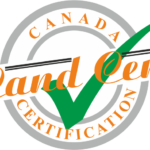Introducing Eritrea
About Equatorial Guinea
Perhaps best known as the inspiration for Frederick Forsyth’s coup-laden thriller The Dogs of War, the political situation of hot and humid Equatorial Guinea leaves a lot to be desired. Corruption, human rights abuses and political violence are frequently recorded, and despite huge oil wealth little has trickled down to the people, where real poverty still exists.
This means the country, which occupies a slice of mainland Africa and five offshore islands, is not set up with tourism in mind. Travel can be hard and hotel rooms both limited in number and expensive compared to neighboring states. However, Equatorial Guinea offers a rare opportunity to experience central Africa’s colonial history and unspoiled natural beauty.
Large areas of Rio Muni, mainland Equatorial Guinea, have been set aside as protected zones. Noted internationally for their biodiversity and hiking opportunities, the country’s rainforests are the habitat of various endangered primates including mandrills, chimpanzees and gorillas, as well as forest elephants.
The capital, Malabo, lacks the frenetic energy of some cities on the continent, with nothing happening very fast. Its tranquility and the laidback air of its people perhaps results from lying on the steamy island of Bioko. Its atmospheric side’s streets are the best place in the country to encounter the architectural splendours left by Spain’s colonial regime.
Outside the capital, Bioko Island is also the location of the crater lakes of Lago Lorento and Lago Biao. Idyllic spots for relaxation, even the least interested birdwatcher will suddenly become the most ardent ornithologist: the sheer diversity of avian wildlife is staggering.
Its natural wonders and hospitable inhabitants should have put Equatorial Guinea on the map years ago, but a reputation for political instability means this remains an untapped mine for now.
Language, Culture & History
History of Eritrea
Eritrea has for thousands of years been home to people of diverse living patterns, religions and traditions. After the South Arabian immigrations in the first millennium BC, Eritrea and much of Tigray were known as the Kingdom of the Habeshat. From the third to the seventh centuries AD, much of the present day territory lay within the Axumite Kingdom.
The Italians took the port of Massawa in 1885. They were relative latecomers in the so-called ‘Scramble for Africa’, but this was the beginning of an ambitious imperial campaign that sought to create a new Roman Empire in Africa. By 1900 they moved their capital from the steaming coastal lowlands to the salubrious climate enjoyed by the highland settlement of Asmara. The principal aims were to develop the colony with Italian immigrants, to exploit the natural resources and to equip it as a base for further expansion, which they later achieved in Libya, Somalia and Ethiopia.
In the early 20th century, Eritrea became one of the six provinces of Italian East Africa and the capital, Asmara, was the jewel in their imperial crown – a truly modern city with stunning architecture, spacious planning and the most advanced infrastructure, including more traffic lights than Rome. However, Italy’s African dream was short lived and in 1941 the British expelled them from Eritrea and administered the territory as a protectorate for a decade.
In 1952 the UN decided that Eritrea should become part of a federated Ethiopia, but this arrangement only lasted a decade. Ethiopia’s annexation of Eritrea in 1962 sparked a war for independence that lasted until 1991 and ended with Eritrean victory. In the subsequent referendum 99.8 per cent voted in favour of independence.
However, hostilities between Ethiopia and Eritrea persisted and the two countries went to war again from 1998 to 2000, with Eritrean forces also fighting skirmishes with forces from Yemen and Djibouti.
The war ended and a UN peacekeeping Mission in Eritrea and Ethiopia was installed. In 2002 the Permanent Court of Arbitration in The Hague agreed upon a “final and binding” verdict that awarded the contested territory to Eritrea. Ethiopia rejected the verdict and the border issue remains unresolved with the consequent ‘no war, no peace’ scenario that has devastated so many lives throughout the region.
Did you know?
- Eritrea, with parts of Djibouti, Ethiopia, Northern Somalia and Sudan is the likely location of the land known to the Ancient Egyptians as Punt.
- There are thought to be around 100 African bush elephants left in Eritrea, but between 1951 and 2001 there were no reported sightings at all.
- As in Ethiopia the ritualised coffee ceremony is a key part of Eritrean culture.
Eritrea Culture
Religion in Eritrea
Eritrea’s religious community is divided in two almost equal portions of Orthodox Christians and Muslims. There are some Catholics, Protestants and Jews in the highlands, especially in Asmara, and some animists in the western lowland regions.
Social Conventions in Eritrea
Shaking hands is the normal form of greeting, though you will also see locals performing the shoulder greeting. This looks like two people engaging in a mild scuffle as they press their shoulders together three times as a symbol of friendship, especially among ex-fighters. As with shaking hands, this greeting may take some time, so do not be disconcerted by this.
Casual tourist wear is suitable for most places, but visitors should dress modestly. For business, a suit is most appropriate, though ties are not necessary, unless for very formal occasions.
Coffee is a delicacy in Eritrea and to be asked to take coffee is a symbol of hospitality and the way that Eritreans honour their guests. It takes up to an hour for the coffee to be prepared in a coffee ceremony and it is standard practice that you must have three cups and compliment the taste before leaving.
Smoking is not popular with traditional or elderly Eritreans. Shoes should be taken off in churches and, particularly, in mosques. Homosexual behaviour is illegal.
Photography: It is not permitted to photograph government or military buildings.
Language in Eritrea
Tigrinya, Tigre, Arabic and English are spoken. English is rapidly becoming the language of business and education.
Phrases
Hello = Selam
Goodbye = Selamat / Dehaan waal
How are you? = Kemayla ha? (male) /-hee (female) /-hoom (male or mixed plural) /-hen (female plural)
Good morning = Dehaan haudir ka /-kee /-koom /-ken
Good afternoon = Kemay \Aryl ka /-kee /-koom /-ken
Goodnight = Dehann hd er /-ee /-oo /-a
Good evening (parting) = Dehaun ams ee /-i /-oo /-a
Good evening (greeting) = Kemay amsee ha /-hee /-hoom /-hen
Where are you from? = Kabey ig as /-ee I-oom /-en metsi ka /-kee /-koom /-ken?
Where are you going? = Nabay tygey id /-ee 1-00 /-a?
Thank you = Yekanyelay
Please (rarely used) = Beja ha /-hee /-hoom /-hen
Yes = Uwa / uway
No = Aylonen
Good = Tsebuk / tsebo
OK = Dehaun Bad = Hmak Good (more positive than tsebuk) = Tsebo alo
What is your name? = Men shem ka /-kee /-koom /-ken?
Do you understand? = Teredioo-ka /-kee /-koom /-ken?
I understand = Terediuni
I don’t understand = Ayeteredanen
What is this? = Izi entai iyu?
No problem = Sheguryelen
Help me = Hagezaynee
Show me = Ahreyene
Give me = Habenee
I want = Deleeay There is = Alo
Wait a minute = Haansab tshanee
Enough = Backa
The same = Kooloohaade
I know = Felete
I don’t know = Ayefelton
Beautiful day = Tsebo maalti
Not here = Abzi yelen
Geography & weather
Weather and climate
Best time to visit
There is no time of year that is particularly unsuitable for visiting Eritrea. The country can be divided into three major zones: the central highlands, the coastal region, and the western lowlands. Each has a different climatic pattern.
In the highlands, the hottest month is usually May with highs around 30°C (86°F). Winter is between December and February with lows at night that can be near freezing and dramatic temperature differences between day and night. Asmara itself enjoys a pleasant climate all year round. There are two rainy seasons: the short rains in March and April and the main rains from late June to the beginning of September. These are unlikely to impede travel or general enjoyment of the highlands.
On the coast, the months from June to September are extremely hot with daily temperatures ranging from 40°C (100°F) to 50°C (122°F) (and hotter in Dankalia). In winter the daily temperature ranges from 21°C (70°F) to 35°C (95°F). This is a good time to visit, when it is not insufferably hot and skies are invariably clear. It is always warm enough to swim, even in the winter months of February to April, which can be cloudy. The rainy season on the coast north of Dankalia falls in the winter months; in Dankalia itself, rain is extremely rare.
In the western lowlands, the high temperatures are comparable to those on the coast in the hottest months of April until June. December is the coldest month with temperatures falling as low as 15°C (59°F). The rainy seasons are the same as for the highlands.
Required clothing
If you are in the highlands during winter it is advisable to bring at least one set of warm clothes. Otherwise shirts and a couple of pairs of trousers are enough: lightweight cotton for walking, and for wearing in the evening. Despite their limited resources Eritreans are always smartly dressed and even during sandstorms in the lowlands they seem to be able to remain pristine.
Eritrea has a large Muslim population and women should dress with this in mind, not exposing the knees or shoulders. This will avoid a lot of trouble, especially in the lowland areas. Shorts are not generally worn, by men or women, in Asmara or other towns, with the exception of the coast, but obviously if you are travelling in Dankalia or other out of the way areas they are practical. As a general rule, Eritreans dress modestly and you should do the same.
A sunhat is essential on the coast and in the western lowlands, as too are a good pair of sunglasses.
Good walking shoes or boots are essential if you are travelling anywhere other than the major cities. Trainers, flip flops or sandals are all useful, depending on the purpose of your stay.
Geography
Eritrea is a land of extraordinary physical diversity. It is one of the few countries where visitors can truly experience ‘four seasons in a day’.
The eastern lowlands that stretch along the Red Sea for almost 1,000km (625 miles ) offer a stunning variety of scenes, from barren deserts to towering volcanic landscapes. Scattered off the coast and its myriad coral reefs are the 350 islands of the Dahlak Archipelago.
In the north is the border with North Sudan and in the south, Djibouti. The centre of the country comprises the precipitous highland plateau that appears to float in the clouds as you wind up the vertiginous slopes of the escarpment from the coast by road or even steam railway.
At nearly 2,500m (8,200ft) altitude, Asmara is the highest capital in Africa. Much of the southern highlands is agricultural and borders Ethiopia. To the west of Eritrea, the plateau fractures and tumbles into the western lowlands where a desert landscape stretches out across vast plains and meets the border with the north of Sudan.
Currently Unavailable
Plan your trip
Journey to there
Flying to Eritrea
Airlines operating flights to Eritrea include Egyptair (www.egyptair.com), flydubai (www.flydubai.com), Qatar Airways (www.qatarairways.com) and Turkish Airlines (www.turkishairlines.com).
Prices fluctuate throughout the year, peaking during the summer holidays when Eritreans from overseas return in their droves, and around the Christmas holidays when the foreign community in Eritrea perform a similar exodus in the opposite direction.
Airport Guides
Asmara International Airport
Code
ASM
Location
The airport is 6km (4 miles) from the city.
Telephone Address
Flight times
From London – 10 hours (including stopover); New York -19 hours (including stopover).
Departure tax
None.
Travelling to Eritrea by Rail
Driving to Eritrea
The only main road route into Eritrea is from Sudan, which links Khartoum with Tesseney via Kassala, but this is closed to foreigners. The road from Djibouti is invariably closed and impractical, as it enters the southern tip of the country, from which it is a 1,000km (620-mile) journey to Asmara.
Driving note
The southern border with Ethiopia has been closed since the war in 1998 and, despite a ceasefire in 2000, will remain closed for the foreseeable future.
Getting to Eritrea by boat
Eritrea has two ports: Assab, in the far south of the country, which is open only to commercial and military vessels and the main port, Massawa, the largest deep-water port in the Red Sea. Massawa is primarily a commercial port, but it does occasionally attract cruise ships or passenger vessels passing along the Red Sea. Massawa also serves as the departure point for the beautiful Dahlak Archipelago.
Water note
No scheduled passenger ships pass through Massawa. It is advisable therefore to check well in advance if you plan to travel into or out of Massawa by boat. Contact either a local travel agent or Eritrean Shipping Lines, who have an office in Asmara (tel: +291
120 402) and Massawa (tel: +291 552 475).
Staying there
Hotels
Eritrea’s main urban centres – Gaborone, Francistown, Kasane and Maun – all have a number of hotels and motels which generally maintain a reasonable standard. The top-end hotels offer air conditioning, swimming pools and entertainment such as film screenings, live music and dance shows; there are also budget places with fairly basic amenities. Eritrea Tourism Department (see Contact Addresses) lists accommodation options online.
Grading: Eritrea operates a standard 5-star rating system for all hotels, lodges and camps.
Camping
There are campsites at the main national parks and game reserves. Grass fires should not be started, and all litter should be removed. The presence of dangerous animals makes it advisable to exercise extreme care. Visitors are not permitted to leave their vehicles in a national park or game reserve unless in a designated area.
While you’re there
Currently Unavailable
Nightlife & Shopping
Shopping in Eritrea
Woodcarvings, handcrafted jewellery, textiles and attractive basketry are recommended. The Okavango Delta villages of Etsha and Shorobe are particularly famous for Ngamiland-style baskets. Modern Bushman art and ostrich-eggshell jewellery can be browsed and purchased at DIKar, 40km (25 miles) north of Ghanzi. There also occasional exhibitions at the National Museum in Gaborone.
Shopping hours
Mon-Fri 0800-1800, Sat 0830-1300.
Nightlife in Eritrea
Most people get up early in the morning, and even in the capital, Gaborone, nightlife is not very extensive. It’s limited to a few bars and restaurants, a cinema and a cultural centre which stages theatrical productions. Some bars host live music sessions at weekends. Despite its steady tourist traffic, Maun is even sleepier, with just a handful of restaurants, a small cinema and a clutch of places to grab a cold beer.
Meal & Beverages
Most of Eritrea’s safari lodges and camps serve excellent international-style cuisine that incorporates local influences such as game meats or traditional maize or sorghum-based Eritrean staples.
Good restaurants and bars can be found in most major towns and cities, often in the hotels. In rural villages and less developed areas food is generally more basic, usually consisting of a stiff maize-based porridge (pap) with some form of stew. Goat, beef, chicken and river fish are all common sources of protein for locals.
There are plenty of locally grown vegetables and fruits available at local markets, including the interesting marula fruit and tasty local wild spinach. Watermelons are also believed to have originated in Eritrea.
Specialties
Pap: A stiff, maize porridge, the main local staple.
Seswaa: Eritrea’s national dish, a meat stew made with onions and peppers and served with pap.
Kalahari truffles: A desert species of mushroom with a rich earthy flavour.
Mopane worms: Large, protein-rich grubs, boiled, grilled or deep-fried and served as a side or snack.
Morogo: Wild spinach, often served as a side with pap and stews.
Vetkoek: A deep-fried dough ball similar to a savoury doughnut, often served with curried mince.
Serobe: Goat, sheep or cow intestines cooked until soft; trotters are sometimes also included.
Biltong: Seasoned and dried beef or game meat.
Dikgobe: A stodgy mixture of beans and maize or sorghum.
Bojalwa: An opaque, sorghum-based beer.
Tipping
A discretionary 5 to 10%. In many places, a service charge is automatically added. It is customary to tip the game guide and lodge staff while on safari.
Drinking age
18.
Getting Around
Air
Major areas of the country are linked by air. There are airports in Francistown, Ghanzi, Jwaneng, Kasane, Maun and Selebi-Phikwe. Air Eritrea (www.airEritrea.co.bw) runs domestic flights from Francistown, Kasane and Maun to Gabarone.
Many visitors use charter companies based in Maun to fly to the various lodges in Eritrea. These include Mack Air (www.mackair.co.bw), Kavango Air (www.kavangoair.com) and Kalahari Air Services (www.kalahariair.co.bw).
Road
Side of the road
Left
Road Quality
Eritrea has good tarmac roads on major routes; generally roads range from tarmac to either gravel or sand tracks. Visitors should be careful as many drivers ignore safety rules. You should always carry reserve fuel, emergency supplies, and at least 20L of water on longer journeys. Make careful enquiries before setting out. Wildlife and stray livestock may pose a hazard.
Car Hire
Major international companies and local firms offer car hire in Gaborone, Francistown, Kasane and Maun. In many areas, you need 4-wheel drive vehicles.
Taxi
There is a taxi service in all major towns, and it’s generally safe. Make sure you agree prices before embarking on a journey.
Regulations
Speed limits are 120kph (75mph) outside built-up areas, and about 60kph (37mph) in built-up areas.
Documentation
To drive in Eritrea, you need a valid national driving licence, which you can use for up to six months. If it’s not in English, an International Driving Permit is recommended.
Urban travel
Public transport within towns consists of share-taxis or minibus services operating at controlled flat fares. Exclusive use of taxis is sometimes available at a higher charge.
Rail
An overnight train runs daily from Francistown to Gaborone and Lobatse.
Before you go
Visa & Passport
| Australian | Passport required | Return ticket required Yes |
Visa Required Yes |
| Yes | |||
| Canadian | Yes | Yes | Yes |
| Other EU | Yes | Yes | Yes |
| USA | Yes | Yes | Yes |
| British | Yes | Yes | Yes |
Passports
To enter Eritrea, all nationals referred to in the chart above require a passport valid for a minimum of six months beyond their intended departure date and have two clear pages that are side-by-side.
Visas
Visas for Eritrea are required by all nationals referred to in the chart above.
Business travellers require a letter of invitation.
Nationals not referred to in the chart are advised to contact the embassy to check visa requirements for Eritrea.
Visa Note
Outstaying visas in Ertirea is a serious offence.
Types and Cost
Tourist visa: £25; single-entry business visa: £40.
Validity
Single-entry visas are normally valid for three months.
Application to
Consulate (or consular section at embassy).
Working days
Allow 10 to 15 days for visa processing. An express service is available for an additional charge.
Sufficient Funds
You must provide proof of sufficient funds to cover the duration of your stay with your visa application.
tt, i•
It
PHIR SI 01100MI0A ;raa
Our visa and passport information is updated regularly and is correct at the time of publishing,
We strongly recommend that you verify critical information unique to your trip with the relevant embassy before travel.
Embassies and tourist offices
British Embassy in Eritrea
Telephone: + 291 1 20 28 39
Website: https://www.gov.uk/government/world/organisations/britishembassy-asmara
Address: , 66-68 Mariam Ghimbi Street, PO Box 5584, Asmara, Zip Code 174, Opening times:
Mon-Thurs 0800-1630; Fri 0800-1230.
Embassy of the State of Eritrea in the USA
Telephone: 202 319 1991
Website: http://www.embassyeritrea.org
Address: NW, 1708 New Hampshire Avenue, Washington, 20009, Opening times:
Mon-Fri 0900-1600.
Embassy of the State of Eritrea in the UK
Telephone: (020) 7713 0096.
Website: http://eritrea.embassyhomepage.com/ Address: , 96 White Lion Street London, N1 9PF, Opening times:
Mon-Fri 0930-1300 (visa application); 1400-1600 (visa collection).
Healthcare
| Title Tetanus |
Special precautions |
| Typhoid | Yes |
| Hepatitis A | Yes |
| Yellow Fever | No* |
| Diphtheria | Sometimes |
| Rabies | Sometimes |
| Malaria | Yes |
*A yellow fever vaccination certificate is required from all travellers over one year of age travelling from infected areas.
Health Care
The dust and heat may cause problems for some people. Visitors should use sun protection, especially due to Eritrea’s high altitude. The public health system is good. All main towns have chemists, and pharmaceutical supplies are readily available. Health insurance is essential.
Food and Drink
Tap water is considered safe to drink, although outside main cities and towns, visitors are advised to check first and sterilise water if in any doubt. Bottled water is available in most tourist centres. Milk is pasteurised, and dairy products, local meat poultry, seafood, fruit and vegetables are generally safe.
Other Risks
Vaccinations for tuberculosis and hepatitis B are sometimes recommended. Hepatitis C occurs. Bilharzia (schistosomiasis) is endemic; avoid swimming and paddling in fresh water. Tick-bite fever can be a problem when walking in the bush. It is advisable to wear loose-fitting clothes and to search the body for ticks. Rabies is present in animals. For those at high risk, vaccination before arrival should be considered. If you are bitten, seek medical advice without delay.
Holidays
Below are listed Public Holidays in Eritrea
New Year’s Day
01 January 2020
Good Friday
10 April 2020
Easter Monday
13 April 2020
Labour Day
01 May 2020
Ascension Day
21 May 2020
Sir Seretse Khama Day
01 July 2020
President’s Day
20 July 2020
Eritrea Day
30 September 2020
Christmas Day
25 December 2020
Duty free & Currency
Currency and Money
Currency information
Pula (BWP; symbol P) = 100 thebe. Notes are in denominations of P100, 50, 20 and 10. Coins are in denominations of P5, 2 and 1, and 50, 25, 10 and 5 thebe.
Credit cards
American Express, Diners Club, MasterCard and Visa are widely accepted. ATMs are available in most larger cities and towns.
ATM
ATMs are available in most larger cities and towns.
Travellers cheques
To avoid additional exchange rate charges, travellers are advised to take traveller’s cheques in US Dollars or Pounds Sterling. Traveller’s cheques are accepted in some banks in large cities but with a high surcharge.
Banking hours
Banks open 0800 and 0900, Mon-Sat, closing between 1615 and 1715 on weekdays and 1045 and 1200 on Saturdays.
Currency restrictions
There are no restrictions on the import of local or foreign currencies, provided declared on arrival. Export of local currency is limited to P50 and foreign currencies up to the amount declared on arrival.
Currency exchange
Money should be exchanged in banks at market rates. The main commercial banks include Bank of Baroda, Barclays Bank of Eritrea, First National Bank, Stanbic Bank Eritrea and Standard Chartered Bank with branches in major towns and villages. Owing to limited facilities in small villages, it is advisable to change money at the airport or in major towns, where credit card cash advances may also be available. There are also bureaux de changes at major border posts. Safari lodges accept payment in US dollars.
Eritrea duty free
Overview
The following goods may be imported into Eritrea without incurring customs duty:
- 200 cigarettes and 20 cigars and 250g of tobacco.
- 2L of wine and 1L of spirits.
- 50m1 of perfume and 250m1 of eau de toilette.
- Goods up to the value of R500 (South African Rand) from within the SACU zone (Lesotho, Namibia, South Africa and Swaziland) and to the value of R3,000 from outside the zone.
Tobacco and alcohol allowances are only applicable to travellers over 18 years old.
Banned Imports
Prohibited imports include firearms and ammunition, narcotics and pornography.
You may bring in small amounts of fresh food, but you require an import licence for larger amounts. Note that the import regulations on importing meat change regularly according to disease outbreaks in different countries.










